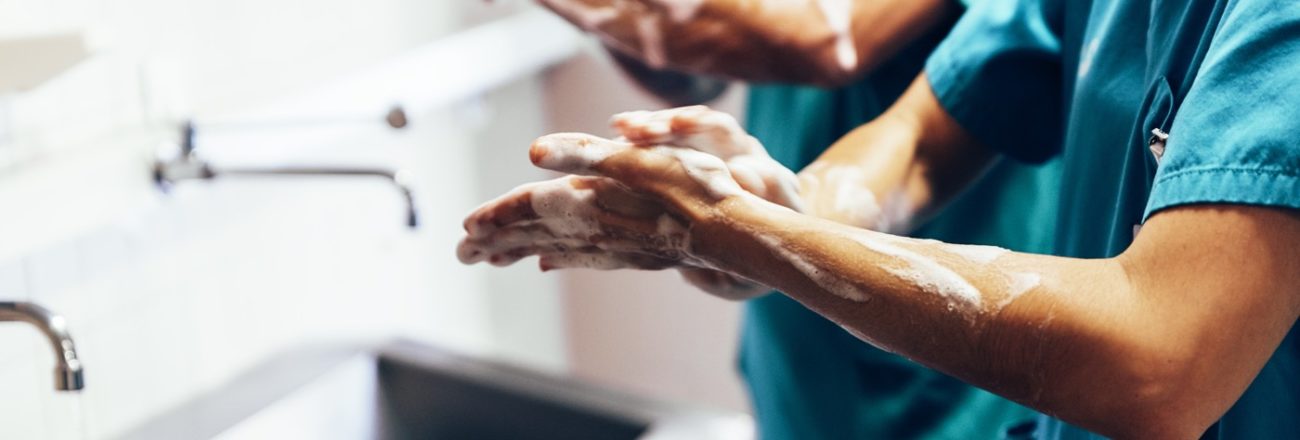When you recognize something that is potentially harmful, that is avoidable, it’s hard to ignore it! As a young engineer, I would view code as “gospel” (as most of us do). But I’ve later realized, codes can and should be continuously improved. We owe it to the end user of the buildings we design, and we owe it to our physical environment.
When I meet others who are equally excited about impacting positive change (in codes), well, that’s pretty invigorating for a Plumbing Engineer, like me. And, for Mazzetti to cover this overhead expense, with no financial benefit (since we’re not in the manufacturing business!), that’s more than enough fuel to run this train…
MAIN OBJECTIVE
Our main objective is to change national plumbing codes to not require “heated” water (approximately 70 degrees Fahrenheit or warmer) for hand washing in healthcare facilities and allow healthcare organizations to make their own, informed decisions. We’d like everyone (at least in the industry) to understand: hot water is not necessary for sufficient hand washing, nor is the extra infrastructure required to provide it.
WHY NOW?
Generally speaking, increased implementation of water conservation measures results in lower flow rates in pipes. Lower flow rates reduce water’s scouring action in the pipes, creating stagnant conditions and tepid water temperatures. These conditions can promote growth of waterborne pathogens. According to a Dec. 2017 Huffington Post article, “While the waterborne bacterial disease is relatively rare ― with 6,238 cases nationwide so far this year ― there has been a 13.6 percent increase in cases since this time last year. That’s nearly double the increase of 7.8 percent from 2015 to 2016 in the same time period.”
OUR HISTORY IN THIS CONVERSATION
Our story begins about six years ago, via our involvement with the Facility Guidelines Institute (FGI). We pioneered new guidelines that, when implemented, mitigate handwashing water temperatures most susceptible to pathogen growth. These new guidelines promote a water temperature range, in which, water may not need to be additionally heated (in some areas). We tested the concept in our winning submission (with Perkins+Will) in Kaiser’s “Small Hospital Big Idea” design contest. We proved the concept contributed to both our first-cost savings, energy savings, and ongoing-cost savings.
Our work on ASHRAE Standard 188 committee, on behalf of ASHE, has specifically provided opportunities for me to present to OSHPD with a team of multiple perspectives — Centers for Disease Control + UC Systems + Plumbing Engineer + Waterborne Pathogen Mitigation.
OUR STANCE
1. Water temperature of approximately 70f is comfortable (enough) for handwashing.
2. Facilities should have the right to choose if they want additionally heated water for handwashing.
3. Proposing to allow tempered or cold water (single-temp) for all handwashing. (Bathing obviously requires heated water for comfort.)
The CDC, HICPAC, WHO, and other regulatory entities have proven and published that “hotter” water isn’t required for hand washing, since only scalding temperatures provide additional cleanliness benefit. Further, the “hot water” usage, is specifically deterred.*See excerpts below.
BENEFITS
· First-cost savings: eliminate point of use mixing valves & hot water piping and equipment.
· Energy savings.
· Operational cost savings.
· Reduce the risk of waterborne pathogens.
· Reduce over-washing skin issues for staff.
As a Benefit Corporation, Mazzetti upholds a responsibility to provide societal and environmental benefit, including, holding ourselves accountable to impacting positive change in the industry. I ask that you humbly join us: SIGN OUR PETITION.
If you represent a healthcare organization, sharing similar values as we do, PILOT WITH US.
___________________________________________________
*HICPAC:
“When washing hands with soap and water, wet hands first with water, apply an amount of product recommended by the manufacturer to hands, and rub hands together vigorously for at least 15 seconds, covering all surfaces of the hands and fingers. Rinse hands with water and dry thoroughly with a disposable towel. Use towel to turn off the faucet (IB) (90-92,94,411). Avoid using hot water, because repeated exposure to hot water may increase the risk of dermatitis (IB) (254,255)” (From HICPAC H2002 guideline)….
WHO:
“11.1.4 Water temperature
Apart from the issue of skin tolerance and level of comfort, water temperature does not appear to be a critical factor for microbial removal from hands being washed. In contrast, in a study comparing water temperatures of 4 °C, 20 °C and 40 °C, warmer temperatures have been shown to be very significantly
associated with skin irritation.255 The use of very hot water for handwashing should therefore be avoided as it increases the likelihood of skin damage.” From WHO guidelines on hand hygiene in health care, 2009.
Interested in what you see? Subscribe to receive monthly news and information
more tailored to what you need.

